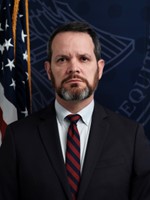Abdullah Bozkurt/Stockholm
In an ongoing US federal case involving a Turkish national accused of defrauding the American government of more than than half a billion dollars, prosecutors have warned that Turkey would likely refuse to extradite him should he flee there, given his extensive family network and access to substantial hidden assets in his homeland.
The case once again underscores how Turkey, under the deeply entrenched and corrupt rule of President Recep Tayyip Erdogan, has evolved into a safe haven for both domestic and transnational criminal syndicates that thrive with political protection, operating with near-total impunity in exchange for bribes and illegal favors.
Over the past decade Turkey’s international partners and allies have grown increasingly frustrated and seem to have lost confidence in the Erdogan government’s ability — or rather its willingness — to engage in genuine cooperation on cross-border criminal investigations, including those involving fraud, money laundering, drug trafficking and terror financing.
The case centers on Cemhan Biricik, also known as Jimmy, a Turkish-born entrepreneur and dual US citizen accused of orchestrating one of the largest healthcare fraud schemes of the pandemic era. Federal prosecutors allege that Biricik, through his company Fast Lab Technologies, masterminded a $566 million billing operation that exploited COVID-19 testing reimbursements from both federal relief funds and private insurance programs.
Fast Lab allegedly submitted hundreds of millions in false claims for tests that were never performed or were improperly billed as laboratory-supervised services. Prosecutors estimate that he personally profited by about $50 million, of which $40 million remains unaccounted for, giving him ample financial means to flee.
The US indictment, unsealed in July 2025 in the Eastern District of Michigan, charges Biricik with one count of conspiracy to commit healthcare fraud and 58 counts of substantive healthcare fraud. His co-defendant, Dr. Martin Perlin, is accused of signing off on thousands of fraudulent test orders for patients he never treated. Both men were arrested the same day.
Prosecutors say Fast Lab built its fraud empire through aggressive online advertising, offering “zero-cost” COVID-19 tests while secretly harvesting insurance information, then repeatedly billing government health programs such as Medicare, Medicaid, TRICARE and the Federal Employees Health Benefits Program (FEHBP).
In an October 15, 2025, court filing, prosecutors argued that Biricik poses an extreme flight risk. They told the court that he has “motive, means, and ability to flee” and that “no conditions or combination of conditions can reasonably assure his presence.” The government cited his Turkish citizenship, family network, wealth and experience in international travel as key factors.
The motion emphasized that “given the absence of a reliable extradition mechanism with the Republic of Turkey, there is a substantial risk of flight beyond the reach of US law enforcement.”

The US District Court for the Northern District of Florida agreed with the prosecutors and ordered the pretrial detention of the defendant on August 1, 2025, after determining that he posed a serious flight risk and that no conditions could ensure his appearance in court. The court noted that the potential sentence — 188 to 235 months in prison — provided strong motivation to escape prosecution.
Although Biricik has lived in Florida since childhood, the court found that his strong ties to Turkey where he was born and where his father and aunt live significantly increase his flight risk. Biricik came to the US at the age of four and lived in New Jersey until 2011, when he moved to Florida. He had already planned to travel to Turkey shortly before his arrest and has a history of international travel to destinations including London, Cancun and Costa Rica.
Evidence presented in court also shows that Biricik trained as a pilot and owned a Cirrus SR22T aircraft, which authorities have since seized along with luxury car fleet that included a Bentley, BMW, Lamborghini and Audi. His wife also has student pilot license. Investigators learned that he had ordered a second plane, likely requiring a substantial prepayment, further confirming his financial ability to engage in private travel outside the United States.
In their opposition brief prosecutors explicitly warned that if released, Biricik could “procure false identification, charter a flight, and exit the country before authorities could respond.” They argued that his knowledge of private air travel and his access to wealth and networks in Turkey make him particularly dangerous as a fugitive prospect.
Judge Midori Lowry concluded that measures such as electronic monitoring or passport surrender would be insufficient, noting that Biricik’s wealth and international connections could enable him to obtain false documents and evade capture. The ruling emphasized that extradition by Turkey in such cases is difficult or impossible, reinforcing the risk that Biricik could remain beyond US jurisdiction if he escaped.
The US government’s motion opposing the release of Cemhan Biricik on bail pending trial makes it clear that there is no guarantee he would be extradited from Turkey if he were to flee there:
The defense filed a new motion on October 1, seeking a new hearing and asking for conditional release. The motion was filed with United States District Court, Eastern District Of Michigan, Southern Division. The government opposed the motion.
The government portrays Biricik as a cosmopolitan con artist who leveraged his Turkish business background and global connections to move funds through a labyrinth of accounts, investments and cryptocurrencies. According to a background investigation conducted by US news outlet BocaNewsNow.com, he filed for bankruptcy in 2019, just before he started the fake COVID-19 testing business. “The federal bankruptcy appears to have wiped out more than $100,000 in debt that he and his wife owed to creditors. By 2024, Biricik purchased his home in Boca Bridges for $4.5M, owned multiple cars including a Bentley, a Lamborghini, and a Rivian. He even titled an airplane in his name,” the news story published by the outlet said.
Prosecutors said evidence recovered from his Boca Raton home revealed a crypto wallet and a Robinhood investment account containing roughly $1 million that was converted into crypto-assets. They believe significant sums remain hidden abroad, possibly in accounts controlled by associates or relatives in Turkey.
US prosecutors pointed to the country’s weak extradition track record and warned that once in Turkey, Biricik could easily evade capture by exploiting his dual nationality and familial networks. He was described as a master of reinvention, starting first with a computer parts and systems e-commerce company; transitioning into branding, marketing, and photography; and moving into the healthcare space.

The filing also noted that Biricik’s considerable wealth, combined with the favorable exchange rate — where one US dollar equals roughly 42 Turkish lira — would enable him to live comfortably in Turkey while evading extradition. The government further warned that at least one third party with whom Biricik maintains a close personal relationship and who received a substantial sum from the fraudulent scheme may assist him in accessing significant hidden funds.
The government also raised the possibility that he might obtain a Turkish passport to travel outside the US. “The defendant could endeavor to procure a set of passable Turkish travel documents and use those to leave the country,” the government motion stated while asking the court to keep him in the jail.
Prosecutors wrote that “his familiarity and comfort with a known foreign country is the real point here,” adding that Turkey’s political climate under Erdogan offers a protective environment for fugitives and politically connected criminals alike.
Prosecutors noted that “there are never any guarantees” that he would be extradited from Turkey. “Inherent in the question of whether he could be extradited are also a host of assumptions, including: (1) he arrives in Turkey under his own name and continues to use that name; (2) he stays there as opposed to further relocating elsewhere in the region, to a country that does not extradite; (3) the Turkish authorities are able to locate and arrest him; and (4) Turkish authorities also share the defense assessment that Biricik’s offense is eligible for extradition,” wrote Jerome F. Gorgon, Jr., the Interim US Attorney for the Eastern District of Michigan, on October 15, 2025.

The government futher dismissed the defense’s assurances that Biricik could be tracked through electronic monitoring, arguing that he had both the technical ability and financial resources to tamper with or circumvent such systems. They further warned that Turkey’s judicial system, now widely viewed as politicized and unreliable, would make any effort at extradition an uphill battle.
Beyond the courtroom Biricik’s case has geopolitical implications. It underscores the growing perception among US and European officials that Erdogan’s Turkey has become a sanctuary for financial criminals, intelligence-linked smugglers and politically favored oligarchs.
From gold traders tied to sanctions evasion to arms dealers and narcotics networks, Turkey’s increasingly opaque financial system and politicized judiciary have turned it into a safe haven for illegal capital. Western law enforcement agencies have repeatedly voiced frustration over Ankara’s refusal to cooperate with investigations implicating regime-connected figures.
In the past decade several Turkish nationals indicted in the United States for sanctions violations, money laundering and fraud have either fled to Turkey or received state protection there. The Erdogan government has repeatedly refused extradition requests from US and European authorities, citing domestic legal barriers or invoking politically motivated justifications.
While the case against Biricik is still ongoing, the shadow of Turkey — its corrupt political elite, compromised judiciary and opaque financial networks — hangs heavily over the case, turning a healthcare fraud prosecution into a reflection of a larger geopolitical dilemma: how to hold criminals accountable when their sanctuary is a NATO ally that has become indistinguishable from the networks it once claimed to oppose.












